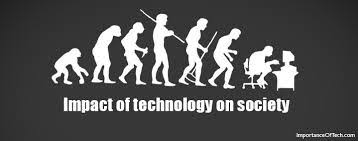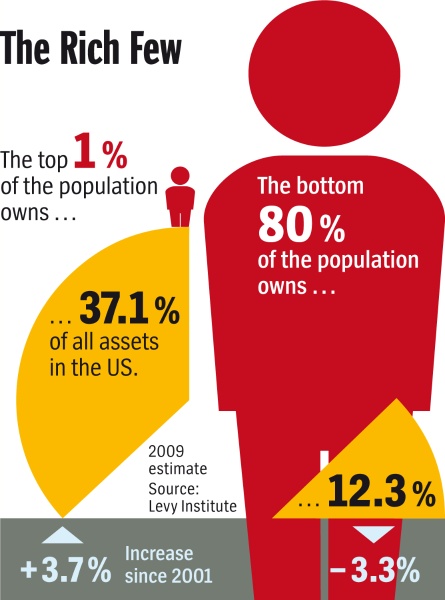The Repression of the Technological Revolution

In the urban age of the world’s societal zeitgeist, an era of effervescent and ecstatic technological devices have been employed and cultivated into the accommodating lives of the members of society. People have become massively enthusiastic proponents of the benefits that the strategic implementation of the pertinent industry’s premier products have promised to provide them with. Corporations have promoted the mechanisms of their own very conceptual machinations that have become fabricated into a real physical formation after meticulous theoretical augmentation purport all of the potential luxurious delights and privileges that the synthetic manifestations of their pioneering genius have to offer; But it is a thinly-veiled and duplicitous deceit, to a certain extent. While the virtues that the utility of iPhones, smart televisions, tablets and personal computers possess and grant people are innovating and abundant, they are available to, or can be exploited for, the invasion of privacy and dignity within the households and lives that they are contained in-In a capitalisation upon the ostensible gullible vulnerability or susceptibility to the endearing allure of the ostentatiousness they are prided upon.
Marketing campaigns have resembled schemes of coercion through propaganda to marginalise the significance of a potential decision to purchase the technologies and render it a trivial forgone certainty. As of 2015, 86.8 per cent of the population of the US alone owned a computer, and 62.9 per cent of the entire world had custody over a mobile phone in 2016, with a projected inflation to a staggering 69 per cent by 2019 that would surpass a figure of 5 billion proprietors. It is a very publicised invasion of privacy, but one that has become welcomed and relished in for the most part. There are many arguments debating the advantages and disadvantages of owning modern technologies, and they have existed for as long as technology itself. Perhaps it is a testament to humanity’s insatiably constant state of never being able to be truly satisfied, that has yielded the bounteous ramifications of the strides made in innovative pursuit of supplanting the established excellence, and exceeding the bar of standard of expectation set, but also the detrimental repercussions of the lack of fulfilment of promises due to the goalposts frequently being moved. The arguments have always remained relative and contemporary to the generation in which they were professed.

It would seem preposterous now that the seniors of years gone by would bemoan the very existence of a radio of a primitive television, but there were those that were highly critical of those advancements, right until the 1960s and 1970s, when the prevalence was finally quelled with the majority consensus deeming their qualms invalidated-Whether rationally, or irrationally. These debates have persevered in their persistence, and have simply adopted the mantra of castigation of the convenience of the expansion into portability of the previously chastised instigating predecessors. But the only difference is the transition involved from the large, opaque eminence of entire television sets and lavish, but impractically immense parchments and books and record players transforming into the remotely mobile tablets, e-readers, portable media devices and smartphones. The only distinguishing element is the refinement and efficiency that those components denote-So why is the resilience of contention and exchanges of lamentation over opposing perspectives still rife?
Despite the exaggeration of what conspiracy theorists posit, there is some legitimacy to their claims. There is a disguise of benignity and benevolence instead of the blatant earnestness of their manipulative channelled focus upon sugar coating a synthetically manufactured influence of orchestration. The ambition is clearly to make the products appealing through exemplifying the services available and suggesting the application of them. It is conveyed in a regaling and tantalising fashion, so as to comfort, and make the reception as palatable as possible. But what is the true intent behind it? There is an underlying tone of sinisterness in the campaigns of certain companies and corporations, that many of the most pre-eminent challengers of the authority would delight in making the hostile oppressiveness of explicitly apparent-And that is where the drastic divide stems from. Evidence has appeared suggesting that the cameras contained within domestic devices are used to spy on their owners, and it have substantiated some of the severe allegations angled in the direction of the producers.

A deficit dividing the social elite that desire themselves as either masterminds of manipulation, genuinely benevolent contributors to society, or some kind of an amalgamation between both; And all of the other vestigial remnants of the human race is the affronting by-product of the systematic abuse that has transpired, in the view of the most convicted naysayers. The fact that virtually everyone who does not possess a device is either unable to afford them, disconnected from the promotional schemes, or repudiating the purchase of them in defiant protest could be considered exemplary of the fire generating the smoke suffusing the monumental significance of the matter. And the modification of collective interests is what those in opposition to the influence are under the impression has eventuated.
The conflict to this, of course, is the innocuous pursuit of tranquillity in the efficiency that pervades the time at present. Those in contention with the subjugating logistics of the relentless campaigning would concur that there is an overall semantic dynamic of a disingenuous, factory production line mentality of simply tweaking the minimum requisite necessities that demand an obscene degree of invested effort from the employees that really construct the divine pieces of first world glory, at the expensive exhaustion of their own perfunctory input. Such a perversion of a betrayal of the best interests of the suppressed majority. It has reached a climactic and beleaguering determination that there is a veritable possibility that the claimed sophistication of civilisation through the superiority of dominion over the mechanical subjects of the very will of everyone constituting it will inevitably descend into anarchy and rebellious revolution as a reactionary impulse deposing what some view as tyranny.

Those claims would be emphatically exaggerated, and perhaps even disproportionate to the truth behind the scenes. Because, even though humans are capable of far more egregious transgressions, there is always the likelihood that the corporations do have the faculty and moral integrity to permit some form of liberty to their customers. The current breed of dominating spearheading pillars for such companies are the same prey of the system as those who live in a comparable state of deprivation, and so society has been conditioned to adhere to this philosophy. In the face of insurmountable odds, or at least in constant setback, those malcontented with the adversity may just capitulate and accept their fate, and so it is not necessarily the fault of the certain members of the upper class. Whether sincere or not, what has been made blatantly clear by the beneficiaries of affluent fortune is the adaptive adoption of progressive mentalities and attitudes toward their approach; And perhaps, there remains hope of salvation from the current state of dissatisfaction with the foundational constructs of the technology industry.
It could be postulated that that hope manifests in the interactive reaction of the collective mainstream to the technologies that are simultaneously the most praised, and the most lambasted-Social media. Reservations about the intoxicating digression the platform for virtual expression is, as it detracts from the ultimately consequential pursuit of the higher priorities of life. There are indisputable benefits of escapist immersion, delving into the depths of the resplendent vistas comprising the terrain of the internet, but they also intertwine with the negatives. There is a hypocrisy to the criticisms of those who derive pleasure from social networking from those who delight in abandoning all inhibitions in the ravenous clamouring for the bewitching allure of television for instance. The current discord with regards to the tenuous state of disharmony with social media is rivalled only by that of the synchronous accompaniment relative to gaming, and the predeceasing contention with television itself.

The vital aspect of any indulgence is moderation; Vices and virtues provide perfect divergent distraction that is an essential staple of dependency for many people, but it is that dependency that can consume people’s lives, contributing to the perpetuation of the vicious cycle of regular releases to almost a guaranteed commercial success. It enables the monolithic companies such as Apple to annually unveil an ostentatious new iPhone. So, the perils of allowing oneself to become inundated by the endearment of technologies and their features are well known. But that is also another of the redeeming assets of doing so. Knowledge is half of the battle, and as long as there is a discipline implemented in the consumption of the wonderful properties, the leisure of the experience of them is integral to the persistence through life. The strain of coping with the pressures of life is a burden that is debatably alleviated best by the catalysts for tension release in the form of digital media and technology, and the hope of salvation or redemption of the exploitative elements of them is rendered more tolerable by way of that virtue.
And that is the universal significance of the entire quandary-It transcends the single industry autonomously. It can be extrapolated and attributed to any allegory representing society as a whole. Behaviours with relevance to ethical conundrums dictate the cognisant regards of financial integrity and states of its affairs, and that is what makes the world go round. The revolution of the planet all but literally hinges on and revolves around this, and examples of allegorical threads throughout media itself(such as in the Doctor Who episode, “Oxygen”, and the illustrated perils of technology in the Terminator franchise) stand as an appropriate acknowledgement of that fact. But also in the conversational nuances that display the benefits of the utilisation of devices as virtues all but exempt from disgrace-There have been scenes and sequences aplenty that have exemplified the ignorance of what is usually the older generation being shown how they are capable of naiveté or of how competent and mature their descendants are through the impeccable operation of modern tech. It has become so prevalently received, that it could be considered that the designated the title it has been designated is an erroneous misappropriation. Is it a revolution anymore? It makes the equity in either side of the debate abundantly clear, and the fact that the intensity of the gusto in which proponents of either side invest into their cases could possibly boil down to the inescapable disparity of the situation; A consequence that afflicts everything in life, indiscriminately.

The issue that will ensure what would appear to be an eternal salience of the debate is the inability to possess an impartial bias, as any opinion can only be impelled by the conditioning of an accumulation of experiences with circumstances. Like everything, it boils down to the relativity and the contemporaneousness of every single individual’s mortality. Multiple microcosms have been conceptualised in a representation of the algorithmic analogy of the paragon, and have become as saturated throughout the public culture as the technologies and the relative issues themselves, and people have come to accept the eventuations as an inexorable outcome of circumstance. A profound epiphany of the repression and the liberty of the technological revolution.








